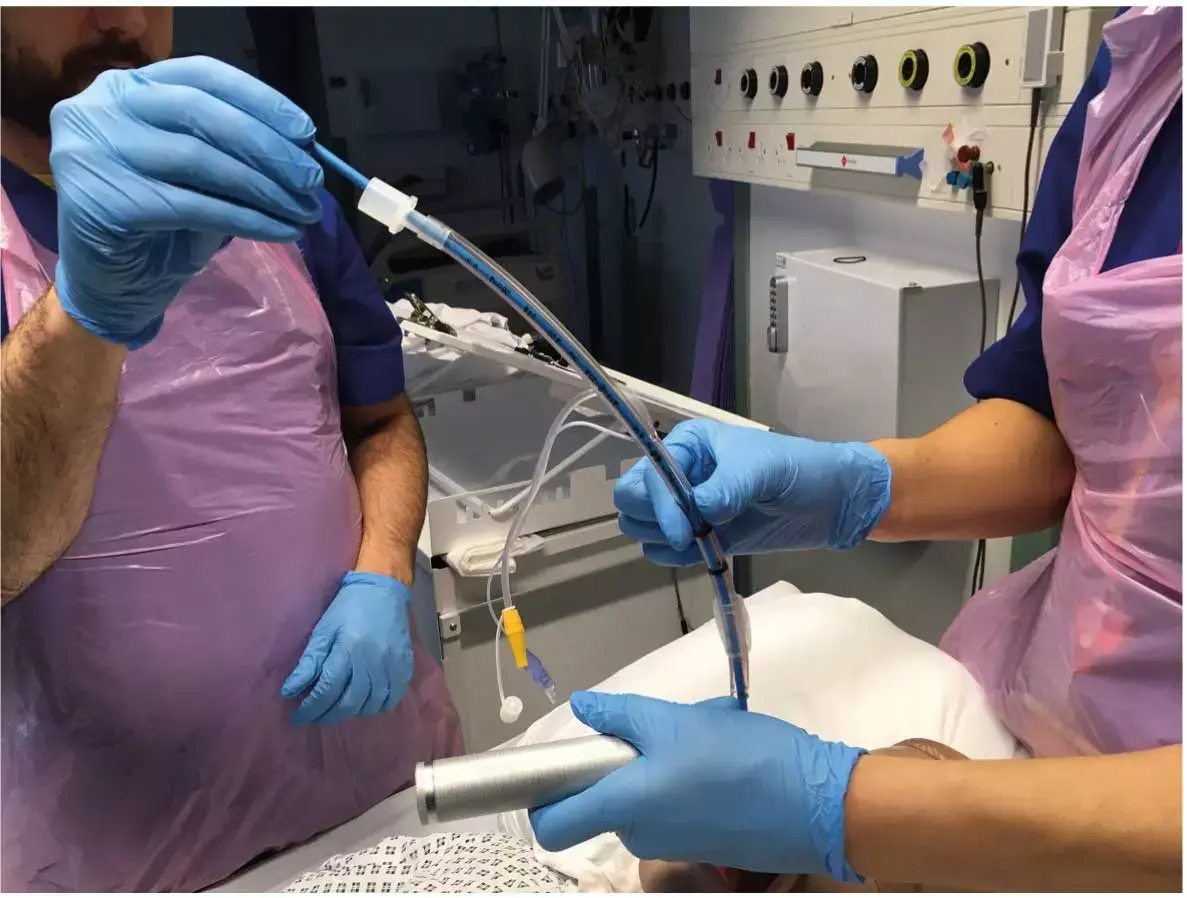- Home
- Medical news & Guidelines
- Anesthesiology
- Cardiology and CTVS
- Critical Care
- Dentistry
- Dermatology
- Diabetes and Endocrinology
- ENT
- Gastroenterology
- Medicine
- Nephrology
- Neurology
- Obstretics-Gynaecology
- Oncology
- Ophthalmology
- Orthopaedics
- Pediatrics-Neonatology
- Psychiatry
- Pulmonology
- Radiology
- Surgery
- Urology
- Laboratory Medicine
- Diet
- Nursing
- Paramedical
- Physiotherapy
- Health news
- Fact Check
- Bone Health Fact Check
- Brain Health Fact Check
- Cancer Related Fact Check
- Child Care Fact Check
- Dental and oral health fact check
- Diabetes and metabolic health fact check
- Diet and Nutrition Fact Check
- Eye and ENT Care Fact Check
- Fitness fact check
- Gut health fact check
- Heart health fact check
- Kidney health fact check
- Medical education fact check
- Men's health fact check
- Respiratory fact check
- Skin and hair care fact check
- Vaccine and Immunization fact check
- Women's health fact check
- AYUSH
- State News
- Andaman and Nicobar Islands
- Andhra Pradesh
- Arunachal Pradesh
- Assam
- Bihar
- Chandigarh
- Chattisgarh
- Dadra and Nagar Haveli
- Daman and Diu
- Delhi
- Goa
- Gujarat
- Haryana
- Himachal Pradesh
- Jammu & Kashmir
- Jharkhand
- Karnataka
- Kerala
- Ladakh
- Lakshadweep
- Madhya Pradesh
- Maharashtra
- Manipur
- Meghalaya
- Mizoram
- Nagaland
- Odisha
- Puducherry
- Punjab
- Rajasthan
- Sikkim
- Tamil Nadu
- Telangana
- Tripura
- Uttar Pradesh
- Uttrakhand
- West Bengal
- Medical Education
- Industry
CPAP significantly reduces tracheal intubation risk in COVID-19 patients with respiratory failure: NEJM

In a new study it was found that an initial strategy of continuous positive airway pressure (CPAP) significantly reduced the risk of tracheal intubation or mortality compared to conventional oxygen therapy in patients with acute hypoxemic respiratory failure caused by COVID-19, but there was no significant difference between an initial strategy of high-flow nasal oxygen (HFNO) and conventional oxygen therapy.
This study was conducted by Gavin D. Perkins and team with the objective to see if CPAP or HFNO improves clinical outcomes in hospitalized patients with COVID-19-related acute hypoxemic respiratory failure as compared to standard oxygen treatment. The findings of this study were published in the Journal of American Medical Association.
This study was a parallel group, adaptive, randomized clinical trial of 1273 hospitalized patients with COVID-19–related acute hypoxemic respiratory failure was conducted in this investigation. The experiment took place between April 6, 2020, and May 3, 2021, at 48 acute care hospitals in the United Kingdom and Jersey. The last follow-up was place on June 20, 2021. Adult patients were randomly assigned to one of three groups: CPAP (n = 380), HFNO (n = 418), or standard oxygen treatment (n = 475). The primary outcome was either tracheal intubation or death within 30 days.
The key findings of this work were as follow:
1. Because to falling COVID-19 case counts in the UK and the conclusion of the sponsored recruiting period, the experiment was terminated prematurely.
2. Primary outcome data were obtained for 1260 of the 1273 randomized individuals. 17.% of individuals switched between interventions.
3. The need for tracheal intubation or death within 30 days was considerably reduced with CPAP compared to conventional oxygen therapy, but not statistically different with HFNO vs conventional oxygen therapy.
4. Adverse events occurred in 34.2 percent (130/380) of CPAP individuals, 20.6% (86/418) of HFNO participants, and 13.9% (66/475) of conventional oxygen treatment participants.
In conclusion, the trial may have been underpowered to compare HFNO with standard oxygen treatment, and early study termination and group crossover should be considered when interpreting the data.
Reference:
Perkins GD, Ji C, Connolly BA, et al. Effect of Noninvasive Respiratory Strategies on Intubation or Mortality Among Patients With Acute Hypoxemic Respiratory Failure and COVID-19: The RECOVERY-RS Randomized Clinical Trial. JAMA. Published online January 24, 2022. doi:10.1001/jama.2022.0028
Medical Dialogues consists of a team of passionate medical/scientific writers, led by doctors and healthcare researchers. Our team efforts to bring you updated and timely news about the important happenings of the medical and healthcare sector. Our editorial team can be reached at editorial@medicaldialogues.in.
Dr Kamal Kant Kohli-MBBS, DTCD- a chest specialist with more than 30 years of practice and a flair for writing clinical articles, Dr Kamal Kant Kohli joined Medical Dialogues as a Chief Editor of Medical News. Besides writing articles, as an editor, he proofreads and verifies all the medical content published on Medical Dialogues including those coming from journals, studies,medical conferences,guidelines etc. Email: drkohli@medicaldialogues.in. Contact no. 011-43720751


